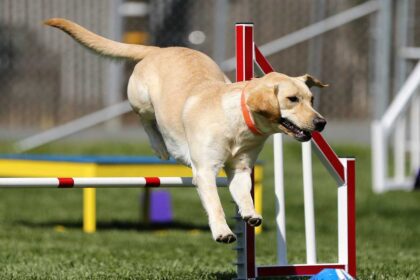Like people and other pets, rabbits can experience seizures—periods of involuntary bodily movement frequently accompanied by some form of mental abnormality. In some circumstances, loss of consciousness can also occur. Seizure episodes can be alarming, especially if you’ve never seen a rabbit or any other pet experience one.
While many rabbits recover totally after seizures, some do have persistent problems. Seizures may either be caused by less serious concerns (such damage or ear infections) or indicators of other rabbit diseases that can be lethal.
Medications may be offered for the management of seizures, however therapy and recovery are mostly dependent on the source of the episodes.
What Are Seizures in Rabbits?
Seizures in rabbits are a neurological disorder that produces rapid uncontrollable movements, odd behaviors, and even loss of consciousness. These episodes in both people and animals are produced by abrupt electrical activity in the brain which can have many diverse causes, including various underlying disorders.
A seizure may not usually entail convulsions, shaking, or twitching, but those behaviors are associated with generalized seizures (sometimes termed grand mal, the most clearly recognizable form). Less severe seizures may go unreported by owners since their symptoms can be mild.
If you’ve noticed any unusual behaviors, especially those incorporating movements of the body, it’s advisable to take your rabbit to an exotic veterinarian who can discuss the signs and perform any necessary testing.
Types of Seizures in Rabbits
Rabbits can experience various types of seizures, each with distinct characteristics:
- Focal Seizures: Originating in specific brain areas, focal seizures cause localized twitching or repetitive movements in one part of the body.
- Generalized Seizures: These seizures affect the entire brain, leading to loss of consciousness, convulsions, and uncontrolled movements.
- Tonic Seizures: Characterized by prolonged muscle stiffness, tonic seizures cause rabbits to become rigid and immobile.
- Clonic Seizures: Involving rhythmic jerking movements, clonic seizures result in spasmodic actions like paddling of the legs.
- Atonic Seizures: Atonic seizures lead to sudden loss of muscle tone, causing rabbits to collapse or slump to the ground.
- Absence Seizures: Brief lapses in consciousness or awareness characterize absence seizures, often presenting as a blank stare.
Understanding these seizure types helps in recognizing and managing rabbit seizures effectively. Each type manifests differently and requires specific attention and care.
Causes of Seizures in Rabbits
Seizures in rabbits may result from several reasons, including viral illnesses like encephalitis and toxoplasmosis, toxicities from consuming dangerous chemicals, genetic predispositions, neurological diseases, and metabolic abnormalities such hypoglycemia or electrolyte imbalances.
Identifying the particular reason is vital for targeted therapy. Veterinary diagnosis, testing, and careful monitoring are crucial for treating the underlying conditions causing seizures in rabbits.
Symptoms of Seizures in Rabbits
The symptoms of seizures may range considerably from modest indicators to obvious actions. You may witness your rabbit make strange motions like rolling, twitching, tilting its head, or being unable to move particular body parts. Grand mal seizures can induce loss of consciousness while suffering involuntary tremors.
Symptoms of Seizures in Rabbits May Include
- Involuntary moves
- Rolling and evident distress
- Unusual angle of the head
- Temporary loss of vision
- Chewing at the air (focal convulsions)
Diagnosis of Seizures in Rabbits
A neurological examination by your exotics veterinarian will assist pinpoint the cause of the seizure.2 Your vet may offer specialized tests to rule out some frequent reasons behind seizures such ear cytology or cultures, MRI or CT scans, radiography (X-rays), E. cuniculi testing, or blood chemistry analysis.
There is, however, no “seizure test” that can pinpoint the cause with precision. If the tests come back inconclusive or diagnostics are not financially viable for you, a range of drugs may be tested before beginning your rabbit on a long-term seizure control prescription.
Treatment Options for Seizures in Rabbits
Effective management of seizures in rabbits often involves a combination of medical and non-medical approaches.
Medical and non-medical approaches to treat seizures: Anticonvulsant medications, dietary supplements, and environmental modifications are among the strategies employed to control seizures and improve the quality of life for rabbits.
Preventive Measures for Seizures in Rabbits
Taking proactive steps to prevent seizures can significantly enhance the well-being of rabbits.
Steps to prevent seizures in rabbits: Maintaining a safe environment, ensuring proper nutrition, and regular veterinary check-ups are essential components of a comprehensive seizure prevention plan for rabbits.
Diet and Nutrition
Dietary factors play a crucial role in managing seizures and supporting overall health in rabbits.
Role of diet and nutrition in managing seizures in rabbits: Balanced nutrition, adequate hydration, and avoiding potential trigger foods can help stabilize rabbits prone to seizures and minimize the frequency and severity of episodes.
Lifestyle Modifications
Creating a conducive living environment is essential for rabbits with a history of seizures.
Making lifestyle changes for rabbits prone to seizures: Minimizing stressors, providing ample exercise opportunities, and establishing consistent routines can promote a sense of security and stability for rabbits susceptible to seizures.
Emotional Support
Offering compassionate care and emotional support is vital for rabbits navigating the challenges of seizures.
Providing emotional support to rabbits with seizures: Creating a nurturing bond, implementing calming techniques, and seeking professional guidance can reassure rabbits during episodes and foster resilience and well-being.
Recovery and Prognosis
Understanding the recovery process and prognosis after seizures is crucial for guiding treatment decisions and long-term care.
Assessing recovery and prognosis after seizures: With proper management and support, many rabbits can lead fulfilling lives despite experiencing seizures. Monitoring their progress and adjusting care plans as needed can optimize outcomes and ensure a bright future for rabbits and their devoted caretakers.
Bonus Tip: Creating a Seizure Journal
Tracking your rabbit’s seizures can be a game-changer for your veterinarian. It allows them to identify patterns, assess seizure severity, and tailor treatment plans more effectively. Here’s how to create a seizure journal:
- Date and Time: Record the exact date and time of each seizure. Consistency is key!
- Duration: Note the seizure’s length in seconds or minutes. Every detail matters.
- Symptoms: Describe the seizure in detail, including the type (focal, full-body, etc.), specific movements (e.g., head bobbing, paddling), and any vocalizations (e.g., squeaking, teeth chattering). The more descriptive, the better.
- Preceding Events: If possible, document any potential triggers that might have occurred before the seizure, such as loud noises, unfamiliar people, or changes in routine. Identifying triggers can help you create a safer environment for your rabbit.
- Post-Seizure Behavior: Record your rabbit’s behavior after the seizure, noting any disorientation, weakness, or other signs (e.g., excessive grooming, hiding). This information can help assess the seizure’s impact and recovery time.
Frequently Asked Questions About Seizures in Rabbits (FAQs)
What should I do if my rabbit has a seizure?
If your rabbit experiences a seizure, stay calm, and ensure their safety by removing any nearby hazards. Contact your veterinarian immediately for guidance and assistance.
Can seizures in rabbits be prevented?
While not all seizures can be prevented, implementing preventive measures such as maintaining a healthy lifestyle, minimizing stress, and avoiding potential triggers can reduce the risk of seizures in rabbits.
Are seizures in rabbits life-threatening?
Seizures themselves may not always be life-threatening, but underlying causes or complications associated with seizures can pose serious risks to a rabbit’s health. Seeking veterinary care is essential for proper evaluation and management.
What medications are used to treat seizures in rabbits?
Veterinarians may prescribe anticonvulsant medications such as phenobarbital or gabapentin to manage seizures in rabbits. Dosage and duration of treatment will vary based on individual needs and response to therapy.
Can rabbits recover fully after experiencing seizures?
With appropriate treatment and support, many rabbits can recover and resume their normal activities after experiencing seizures. Close monitoring and adherence to treatment recommendations are essential for ensuring a successful recovery.
Conclusion
Navigating seizures in rabbits requires patience, knowledge, and unwavering dedication. By understanding the causes, symptoms, and treatment options, rabbit owners can empower themselves to provide compassionate care and support, ensuring a fulfilling life for their beloved companions.













